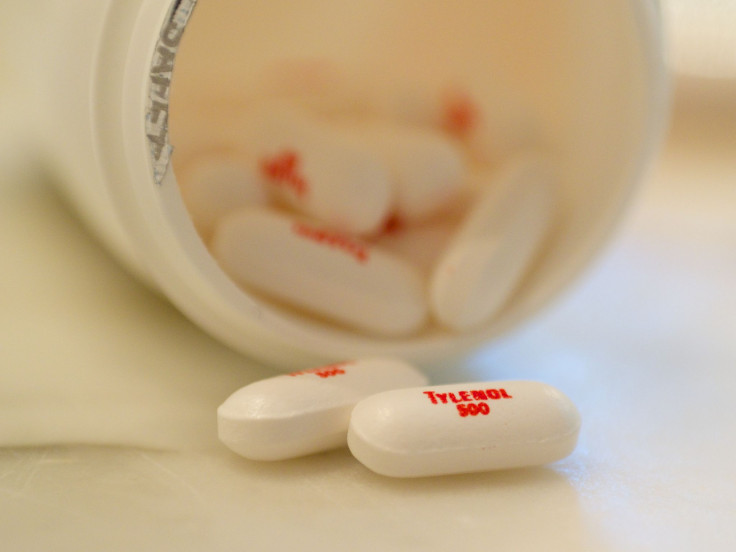Acetaminophen During Pregnancy May Lower Testosterone Levels In Unborn Sons

Pregnant women may want to reduce their Tylenol intake to a case-by-case basis, a new study finds, as acetaminophen has been found to reduce testosterone production in the male offspring of mice.
Most of the time, male reproductive disorders actually developed when men were just a fetus. While the primary causes are still unknown, Tylenol has seen a great deal of research pointed in its direction because of its apparent link with testosterone suppression, which can result in undescended testes, infertility, and testicular cancer. However, some argue the tests are simply too early and restrictive for the results to translate to human models.
The latest study involved male mice that had been grafted human tissue and female mice that were put in a pregnancy state, meaning they were given doses of a hormone that recreated the physiological experience of pregnancy. When the female mice were fed acetaminophen for seven days, the unborn male offspring showed an 18 percent drop in seminal vesicle weight and a 45 percent drop in testosterone levels.
“We would advise that pregnant women should follow current guidance that the painkiller be taken at the lowest effective dose for the shortest possible time,” said study co-author Dr. Rod Mitchell, clinical research fellow at the University of Edinburgh, in a statement.
Past investigations into Tylenol use during pregnancy have turned up rather dry compared to Mitchell and his team’s findings. In 2010, Dutch scientists found that “single-ingredient-acetaminophen use during the first trimester does not appear to increase the risk of major birth defects.” In that case, 47 percent of women reported using acetaminophen in the first trimester, though the risks for several defects, such as cleft lip and certain gut disorders, were low. They did not measure reproductive disorders.
Doing so is actually quite tricky, according to Dr. Sadaf Ghaem-Maghami, of the Royal College of Obstetricians and Gynaecologists. “It is important to note that the study was carried out in animal models,” Ghaem-Maghami told the BBC, and for ethical reasons “it is not possible to translate the findings into a recommendation regarding what would be safe or unsafe in pregnant women.”
In addition to taking Tylenol for seven days straight, which, unless feverish, women are unlikely to do, the mice themselves were made to recreate a human condition. Any conclusions made about the research must take these limitations into account, Ghaem-Maghami says. “Further research needs to be conducted into how [Tylenol] may affect testosterone levels as well as examining the long-term developmental effects on testosterone production.”
Data from the Centers for Disease Control and Prevention show medication use has risen to roughly nine out of 10 pregnant women, with seven out of 10 taking a prescription medicine. In recent years, scientists studying environmental causes of birth defects have upheld the link between neurologic disorder and exposure to pollution, drugs, alcohol, and poor diet. However, without conclusive evidence that one lifestyle choice leads to one set of birth defects, the best recommendations urge mothers to exercise caution.
Sometimes stopping medication can do more harm to the developing embryo than continuing the regimen. According to the new research, Tylenol for fever reduction seems to fall into that group.
Source: van den Driesche, Macdonald J, Anderson R, et al. Prolonged exposure to acetaminophen reduces testosterone production by the human fetal testis in a xenograft model. Science Translational Medicine. 2015.
Published by Medicaldaily.com



























